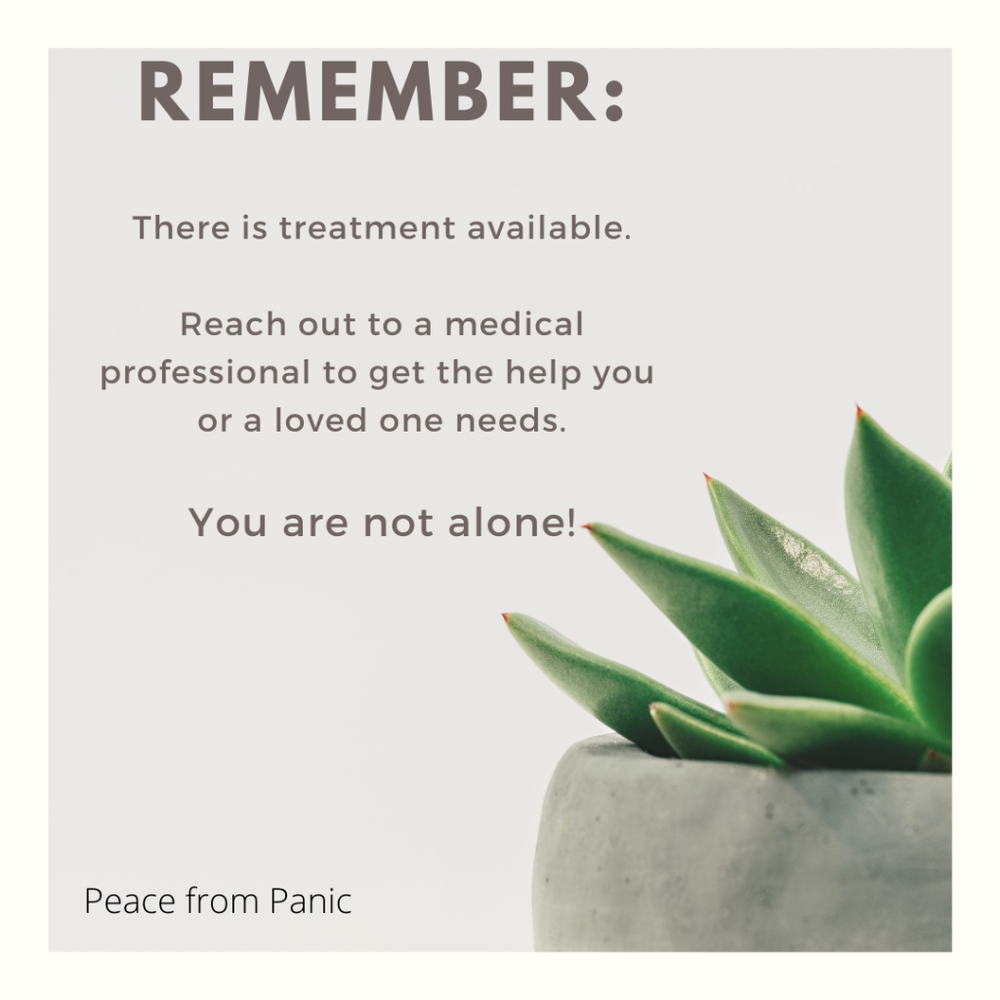David Baxter PhD
Late Founder
How Grounding Techniques Help My Panic Symptoms
Jeni Driscoll, Peace from PanicApril 14, 2021
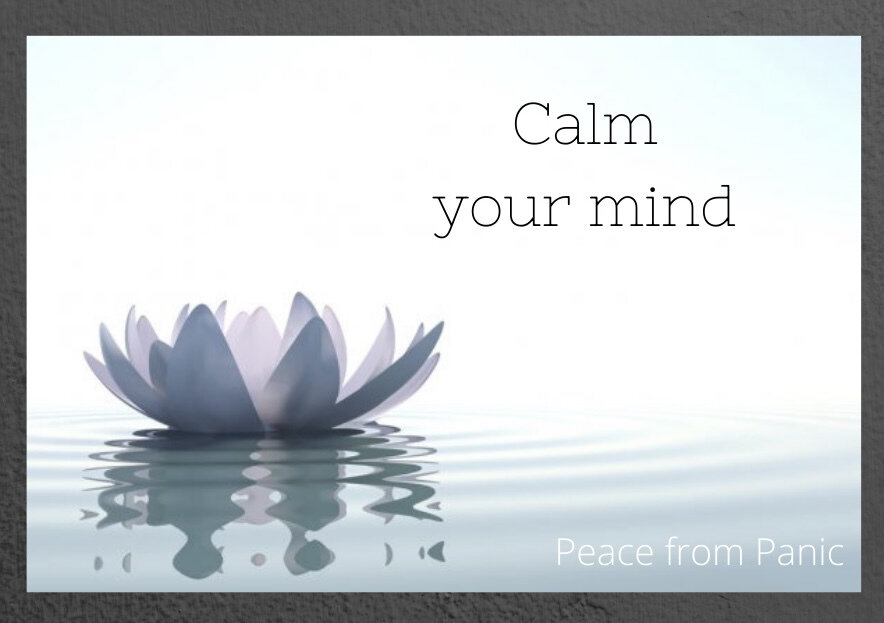
Back in December 2018, I wrote an article for NAMI (National Alliance on Mental Illness) that described my experiences with panic disorder, including derealization and depersonalization. You can read it here on the NAMI blog. Since it published, I’ve received dozens of emails asking how I was able to recover.
I wish I had a simple, easy answer. Although I consider myself recovered, I still have to work at lowering my anxiety. It’s an ongoing process. And we’re all different—what works for me may not work for someone else.
Before I explain what helps me, I want to give a little background:
I’ve had panic attacks since I was young. I don’t remember my first one. But I’ll never forget the first time I experienced feelings that were so terrifying and surreal—they felt unreal. I was in fourth grade.
My teacher asked me to go to the administration office to pick up some papers. When I arrived, a strange sensation came over me, like I wasn’t sure what I was doing. Am I really here? Is this me or someone else I’m watching? Is this real?
The best way I can explain how it feels is that I’m detached from myself, like living in a fog or dream. I wonder if I’m in the right body. My face and limbs feel numb, like a plastic mannequin. When I walk, it doesn’t feel like my own legs are holding me up. My arms don’t feel like they belong to me. When I stare at my reflection in the mirror, I wonder if the person looking back is really me. It’s as if I’ve stepped out of myself and am looking at someone I don’t know. My voice doesn’t sound like mine. I feel removed from the world. Objects look blurry, sounds distorted. It’s a struggle to bring myself back. In these moments, I have wondered if I was going “crazy.”

The medical terms for these intrusive thoughts are derealization (feeling withdrawn from one’s surroundings, as if the world isn’t real) and depersonalization (an out-of-body experience in which a person feels separated from his own self). Derealization and depersonalization can be symptoms of panic disorder, which I’ve been diagnosed with.
So, what helps me?
Anti-depressant medication has lessened the frequency and intensity of my panic attacks and also the feelings of unreality. But it hasn’t taken them completely away. I know I’ll never be 100 percent cured from panic disorder.
But… I’m able to control my symptoms and live a full, productive, joyous life with the help of medication, mindfulness, and grounding techniques.
I used to think the terms mindfulness and grounding were interchangeable. They’re not exactly the same.
Mindfulness: Purposefully paying attention to what is happening in the present moment, while acknowledging and accepting your feelings without judgment. Mindfulness helps me slow down and appreciate life.
Grounding: Rather than being nonjudgmental about what is happening in the present moment, grounding focuses your attention away from a place of trauma or stress, guiding it toward safety in the here and now. Grounding connects me to my body and my surroundings, reminding me that I’m here and I’m safe.
Grounding techniques use the five senses (see, touch, hear, smell, taste). The purpose is to keep yourself in the present moment. At first, this didn’t come easy to me. It’s taken practice!
Here are some to try:
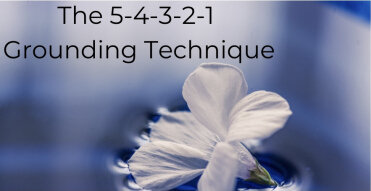
List five things you can see.
Four things you can touch.
Three things you can hear.
Two things you can smell.
One thing you can taste.
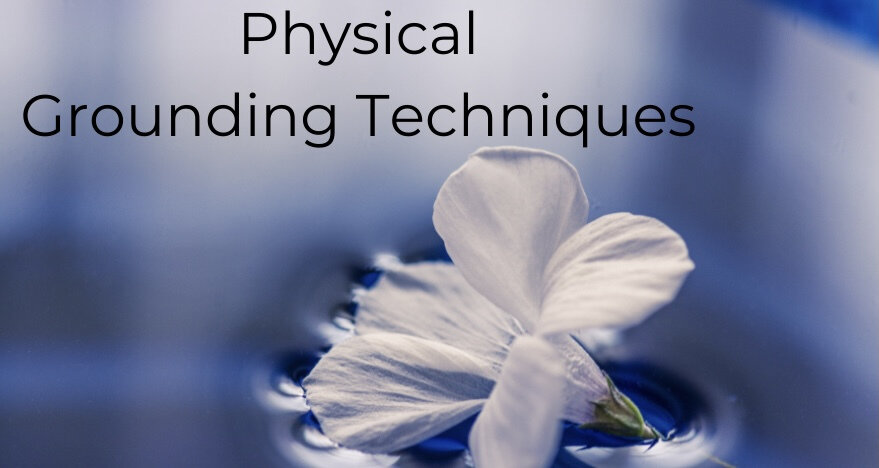
Deep breathe (this is my favorite exercise, it calms me right away). Inhale through your nose while counting to seven in your head. Hold for a count of two. Exhale slowly through your mouth, counting to seven.
Talk to someone.
Use a grounding object, like a stone, a small stuffed animal, a stress ball. Touch it and notice the texture.
Taste food or a drink. Is it cold, hot, creamy, crunchy, sweet, salty, sour, or bitter?
Chew gum, noticing the flavor and how it feels in your mouth as you chew or blow bubbles.
Smell a flower, essential oils, coffee, a lemon, lavender. Does it relax you?
Listen. Is there a dog barking, sirens blaring, birds singing, wind rustling?
Stretch or exercise, aware of how your arms and legs feel with each movement.
Take a walk. Feel your footsteps on the dirt, gravel, or pavement.
Pinch yourself, pull your hair, wiggle your fingers and toes.
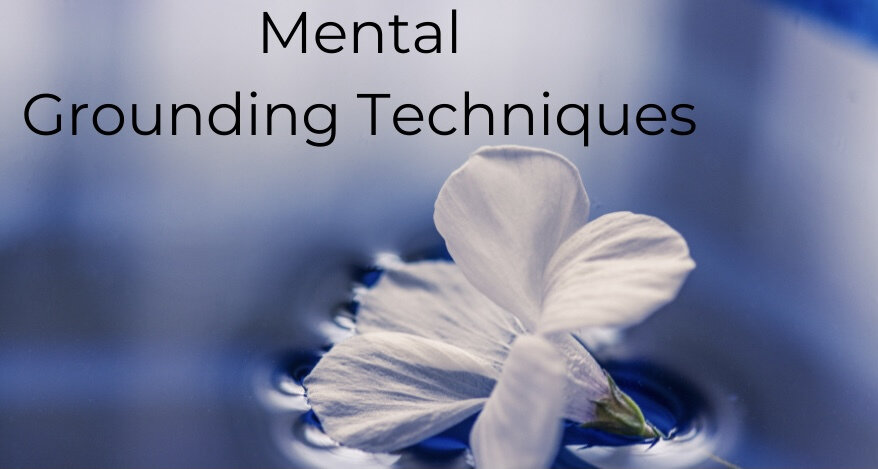
Count to 100, then backwards.
Sing a song or say a nursery rhyme in your head.
Describe your surroundings in detail. Focus on an object, memorizing details about it. Look away and list everything you saw.
Name all your family members and their ages.
Use an anchoring phrase: say your name, your age, the date, what time it is, where you are, what you are doing.
Repeat a mantra while deep breathing. Like: “I am safe.” “Life is good.” “I am real. The world is real.” “Here. Now.”
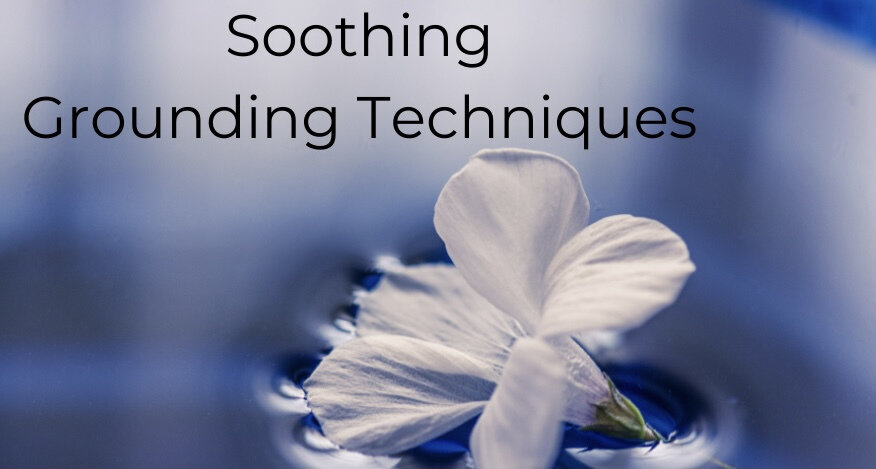
Pet an animal.
Take a shower or bubble bath.
Listen to your favorite music.
List five things you’re grateful for.
Journal.
Practice visual imagery. Think of a place you love, describe it to yourself in detail, and picture yourself there.
Think of someone you love and what they would say to you.
Be kind to yourself. Tell yourself: “I matter.” “I will get through this.” “I’m doing the best I can.”
